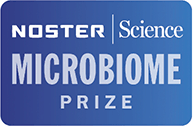Treatment with immune checkpoint blockade therapies that target the programmed death receptor 1 (PD-1) pathway has revolutionized care for patients with melanoma and numerous other cancers. In melanoma, median overall survival rates for patients with metastatic disease have doubled in the anti-PD-1 therapy era (1, 2). Cure of metastatic disease is now a tangible prospect. Complete disappearance of all metastatic lesions is observed in 10 to 20% of patients undergoing anti-PD-1 therapy (3), many of whom remain cancer free for years (4). Despite this outstanding clinical success, most metastatic patients will experience disease progression, either immediately or after an initial response to treatment (5). Today, extensive efforts worldwide are focused on understanding resistance to anti-PD-1 therapy, with the aim of developing new treatments to overcome it.


To better understand resistance mechanisms to anti-PD-1 therapy, we studied tumors from cancer patients who responded to treatment and from those who did not. Prior to treatment, tumor biopsies were collected from melanoma patients at the Sheba Medical Center, Israel. We performed proteomic analyses on these samples. The tumors of anti-PD-1 therapy responders versus nonresponders revealed significant differences in two major functions: metabolism and antigen presentation (6). Specifically, we observed that responding tumors exhibited up-regulation of oxidative phosphorylation and lipid metabolism pathways, as well as enhanced antigen presentation machinery pathways.
Emerging data from preclinical models have demonstrated an impact of gut microbes on immunotherapy response (7, 8). We hypothesized that melanoma patients’ gut microbiota were affecting both metabolism and antigen presentation in their tumors and turned our efforts to modulating gut microbes to enhance responses to anti-PD-1 therapy in cancer patients.
We decided to study the gut microbes in patients with metastatic melanoma undergoing treatment with anti-PD-1 therapy. We performed 16S ribosomal RNA (rRNA) gene sequencing on patients’ baseline stool samples and compared the composition of the gut microbes of anti-PD-1 therapy responders and nonresponders. We noted that responders had a higher relative abundance of Ruminococcus and Prevotellaceae in their gut microbiota, whereas nonresponders had a higher relative abundance of Betaproteobacteria.
Concurrent with our studies, a series of independent reports were published in 2018 (9–11), establishing notable differences in the gut microbiota of responders and nonresponders to anti-PD-1 therapy. These reports also associated Ruminococcus and Prevotellaceae with a favorable clinical response to immunotherapy. One of the groups, led by my current research mentor, Jennifer Wargo, reported that fecal microbiota transplantation (FMT) leads to enhanced anti-PD-1 effectiveness (9). With these findings in mind, we decided to assess the feasibility of conducting FMT in patients with anti-PD-1–resistant metastatic melanoma to improve their clinical response.
We began with the goal of identifying whether the optimal FMT donor was a healthy donor or a melanoma patient who has achieved a durable and profound tumor regression on anti-PD-1 therapy for at least 1 year (a “durable responder”). We studied stool samples from 9 healthy individuals and 10 patients with melanoma who were durable responders to anti-PD-1 therapy. Analysis of the gut microbiota in these cohorts demonstrated that the durable responders had microbiome signatures consistent with those of responders in prior cohorts. Healthy individuals, however, demonstrated substantial variability, with some having gut microbiome signatures similar to those of responders, and others having gut microbiome signatures similar to those of nonresponders. We therefore chose to move forward with durable responder donors and identified two melanoma patients (i.e., Donor 1 and Donor 2) who experienced complete tumor regression following anti-PD-1 therapy to serve as FMT donors on a clinical trial.
We next designed a first-in-human phase 1 clinical trial, aimed at assessing the safety and potential immune effects of FMT in anti-PD-1–resistant metastatic melanoma patients. The patients who enrolled in this study (i.e., FMT recipients) underwent an initial “native microbiota depletion” phase in which they ingested oral antibiotics. FMT was then performed by both colonoscopy and administration of oral stool capsules. Anti-PD-1 therapy was then reintroduced. For each recipient patient, stool, gut, and tumor samples were collected before treatment and at several time points during the treatment protocol.
Our findings demonstrated clinical responses to anti-PD-1 therapy in 3 out of the 10 patients treated, including one patient with complete tumor regression—an exceptional outcome for this immunotherapy-resistant patient population (12). These clinical responses may be explained by FMT’s profound impact on the recipient patients’ gut microbiota and immune activity. Engraftment of the FMT was confirmed by 16S rRNA gene and metagenomic sequencing of longitudinal gut microbiota samples, revealing that recipient patients’ gut microbiota composition was similar to that of their donor. Treatment with FMT was also associated with an increase in activity of antigen-presenting cells in both the gut and tumors of the recipient patients, as well as an increase in CD8+ T cell activity in their tumors—a critical step in mounting an antitumor immune response (13).
I have completed my MD-PhD and am currently enrolled in internal medicine residency in the Physician-Scientist track at the University of Texas, McGovern Medical School. As a member of Dr. Wargo’s laboratory at the MD Anderson Cancer Center, I am continuing my efforts to uncover the mechanisms behind microbiota effects on anticancer immunity. We are working to understand host-microbiome interactions in cancer using different modulation strategies, such as FMT, consortia, and dietary intervention to develop new treatments that will enable metastatic patients to harness the advantages of microbiota modulation in their fight against cancer.


PHOTO: COURTESY OF EREZ BARUCH
FINALIST
Erez Baruch
Erez N. Baruch received undergraduate, MD, and PhD degrees from Tel Aviv University, Israel. After completion of his graduate studies, he started an internal medicine residency in a research (Physician-Scientist) track to medical oncology. Internal medicine training is conducted in the McGovern Medical School in Houston, Texas. The research work is conducted in Dr. Jennifer Wargo’s lab at the Department of Genomic Medicine, MD Anderson Cancer Center, and is focused on mechanisms of immunotherapy resistance and toxicity, modulation of the gut microbiota, and interaction between innate and adaptive immune cells. www.sciencemag.org/content/373/6551/173.1


